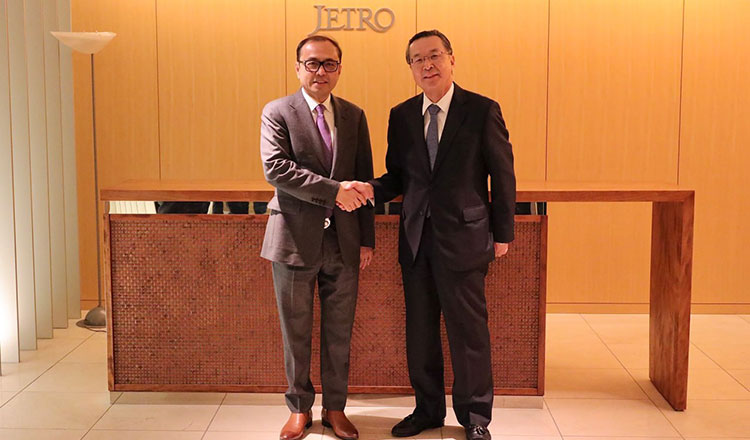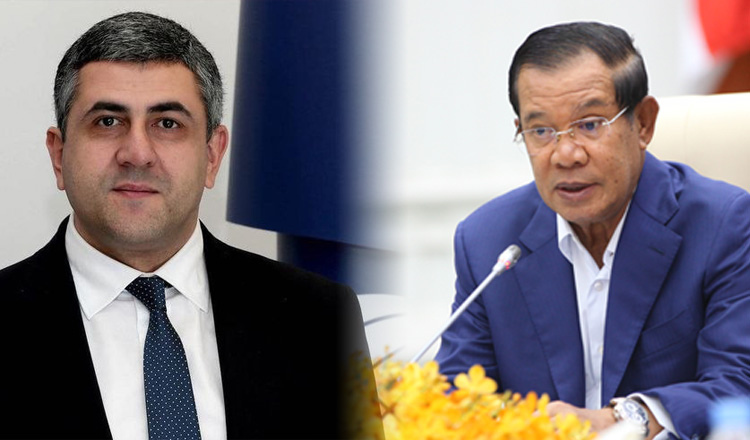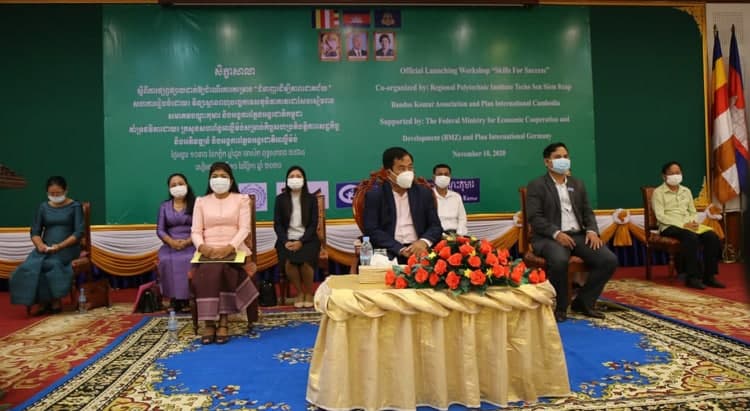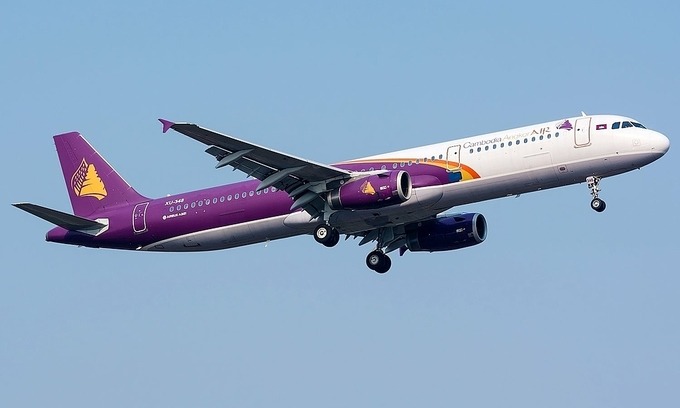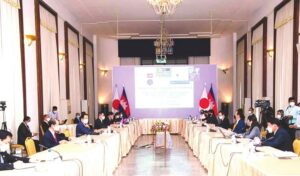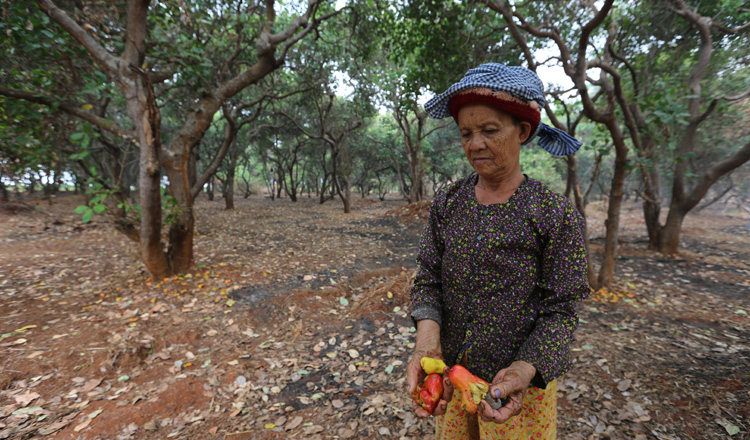Japanese firms eye Cambodia as an investment base
Amid the global trade war, many Japanese companies have been reviewing and reorganizing their value chains and production to diversify their bases by redirecting investments to Southeast Asian countries, including Cambodia, said Ishiguro Norihiko, Chairman and CEO of the Japan External Trade Organization (JETRO) on Wednesday.
This was stated during a meeting with Vongsey Vissoth, Permanent Deputy Prime Minister and Minister in Charge of the Office of the Council of Ministers (OCM).
On the same day Vissoth, who is leading a high-level delegation, also met with Iwao Nobuyuki, Director-General of the Cabinet Legislation Bureau and Atsumi Gamo, President of the Japan National Tourism Organization (JNTO) in Tokyo.
During his meeting with Norihiko, Vissoth discussed challenges and strategies for enhancing trade and investment between Cambodia and Japan.
Vissoth thanked JETRO for its cooperation and reiterated the Cambodian government’s strong commitment to addressing private sector concerns through the Royal Government-Private Sector Forum. He encouraged Japanese investors to communicate their challenges openly with the Cambodian government to facilitate solutions.
Additionally, he discussed key issues such as labour shortages, skilled workforce training, support for new businesses, and investment incentives—all aimed at attracting more Japanese investment to Cambodia.
Both sides also exchanged views on enhancing Cambodia’s production capacity, improving product quality and standards, and increasing Cambodian exports to the Japanese market.
Furthermore, they discussed JETRO’s new policy aimed at fostering Cambodia-Japan business cooperation and supporting the growth of Cambodian enterprises.
Speaking to Khmer Times, Seun Sam, a policy analyst at the Royal Academy of Cambodia, said that the relocation of Japanese companies to Asia, including Cambodia, presents a valuable opportunity for the country to attract investment from Japan.
However, he noted that this remains a general statement from the Japanese side rather than a confirmed decision to invest in Cambodia.
“Foreign investors, especially Japanese companies, conduct thorough studies before investing in any country. They examine stability, production capacity, infrastructure—such as water, electricity, and transportation—and, most importantly, factors like corruption and extraneous costs,” Sam explained.
“If Cambodia wants to attract Japanese or other foreign investors, it must address internal challenges and strengthen its institutional capacity. Investors are not against Cambodia, but before committing, they always hire market assessment teams to study and research opportunities, challenges, and potential profits,” he added.
He went on to add that for example, a company planning to invest $1 million typically spends $10,000 to $20,000 on hiring an international firm to analyze the impact, opportunities, and risks of the business they intend to pursue.
“When they assess a market and determine that a venture is not profitable, they will not invest, as all investment groups prioritize returns.
If the government genuinely wants to attract foreign investment, it must address existing shortcomings to boost investor confidence and enhance tourism,” Sam added.
Later that day, during a meeting with the Cabinet Legislation Bureau, Iwao Nobuyuki warmly welcomed Vissoth and the Cambodian Cabinet delegation. He expressed a strong commitment to cooperation, particularly in sharing expertise related to legislative processes and legal reform. The Cabinet Legislation Bureau, which has functions similar to those of the Office of the Council of Ministers, plays a key role in Japan’s legislative and legal framework.
On this occasion, Vissoth emphasized that the Royal Government of Cambodia, under the 7th National Assembly term led by Prime Minister Hun Manet, prioritizes building competent, efficient, clean, and intelligent public administration institutions and systems.
He stated that these are essential for establishing the rule of law and driving national development. As the head of the institution responsible for legislative work and legal reform, Vissoth highlighted the Office of the Council of Ministers’ commitment to studying and adopting global best practices.
He expressed gratitude to Nobuyuki and officials of the Legislative Affairs Committee of the Japanese Cabinet for their willingness to share their experiences and knowledge with the Cambodian delegation. He also welcomed their agreement to continue this cooperation for the benefit of both institutions.
Meanwhile, during a meeting with the Japan National Tourism Organization (JNTO), Atsumi Gamo shared insights into the Japanese government’s strategy for developing tourism as a key economic sector, making it Japan’s second-largest industry.
Discussions focused on challenges within the Cambodia-Japan tourism value chain, including understanding Japanese tourists’ preferences, Japanese government policies, and solutions to existing barriers.
Both sides explored ways to promote tourism growth, increase Japanese tourist arrivals in Cambodia, and strengthen people-to-people exchanges between the two nations.
Source ៖ Khmer Time

